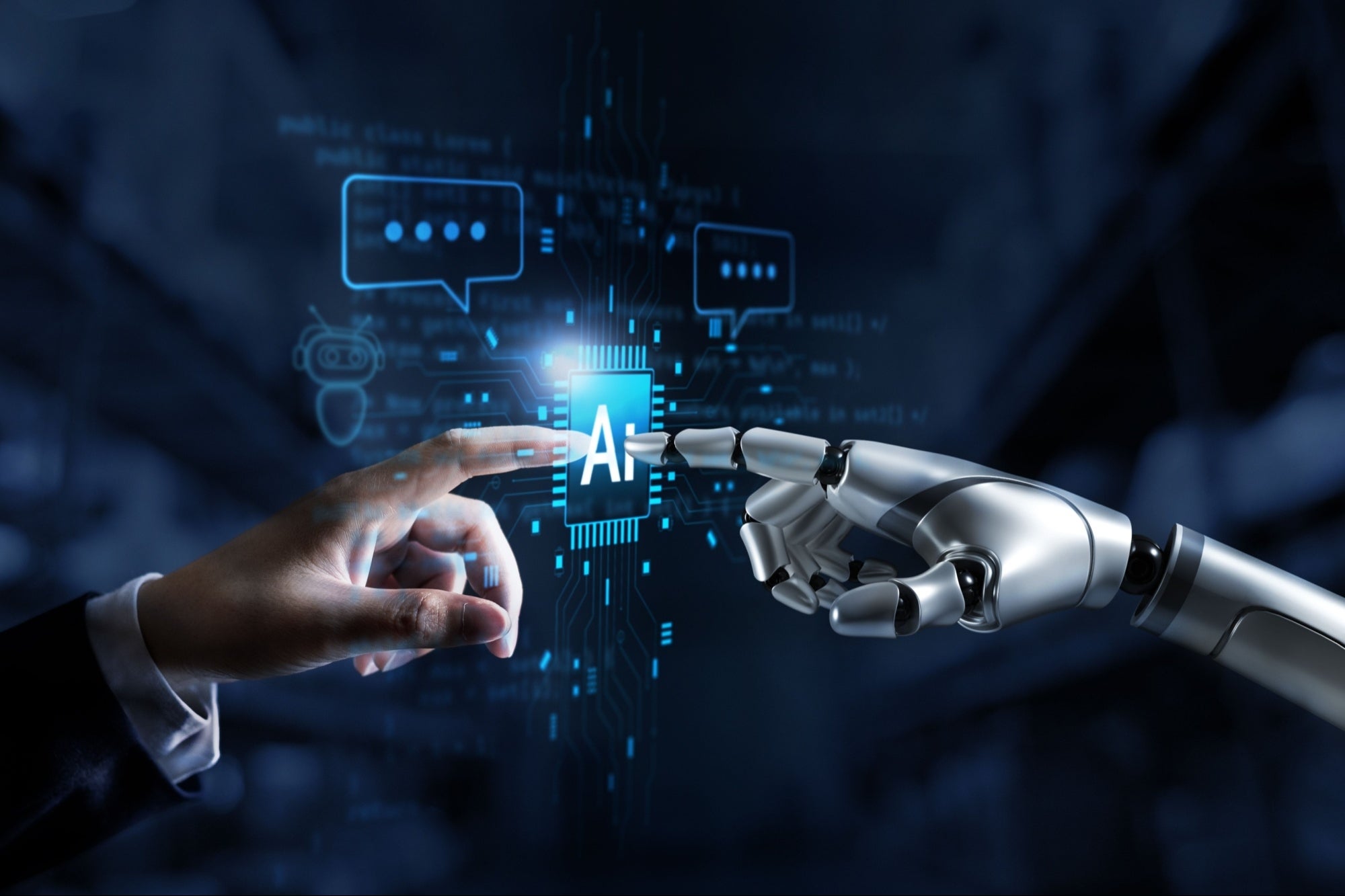The AI Adaptation Gap: Why Businesses Are Ill-Equipped for the Future
Edited by Entrepreneur UK
You're reading Entrepreneur United Kingdom, an international franchise of Entrepreneur Media.

As artificial intelligence accelerates at breakneck speed, Stephen G. Parry, founder of the Sense and Adapt Academy, argues that most organizations remain dangerously unprepared, not because they don't recognize AI's potential, but because they are trying to adapt it to outdated systems and outdated thinking. "We are living through a technological tornado," says Parry. "And most business leaders are still drawing blueprints for buildings that no longer exist."
Parry calls this disconnect the AI adaptation gap, a growing divide between the pace of AI deployment and the ability of organizations to integrate, manage, and benefit from it. "It's not about the usage of daily life AI tools," he clarifies. "It's about AI that transforms entire industries, systems used across multiple organizations, supply chains, and customer experiences."
At the heart of the problem lies a tangled web of legacy infrastructure. "Organizations want to deploy AI," Parry explains, "but their systems, banks, airlines, logistics firms are built on decades-old technology. The technical debt is staggering." He cites the airline industry as a prime example. Their attempt to integrate AI across the airline and travel ecosystem is groundbreaking, but also incredibly complex, involving tens of thousands of stakeholders, interlinked databases, and systems never designed to speak AI's language.
"Imagine trying to install a smart home system in a house that still runs on 1950s wiring," Parry says. "That's what most enterprises are facing."
The scale of disruption is just beginning. According to Parry, the hidden cost of AI is not just technical, it's human. Jobs are vanishing, not because of automation per se, but because companies lack the foresight to retrain their people. "We are seeing layoffs everywhere, yet there's massive demand for AI-literate talent," he says. "The tragedy is we are not investing in our own people. Instead, we are outsourcing to mega firms that already have the capabilities, including companies outside the US."
This outsourcing trend, he warns, leads to dangerous centralization. "We are consolidating power in a few big players who absorb the complexity and profit from it. Smaller businesses lose control. Economies lose resilience," Parry says. It's not just a business issue; it's geopolitical.
But Parry is not pessimistic. He's just urgent. Through his Sense and Adapt Academy, he advocates for a radical shift in organizational intelligence, one that prioritizes adaptability, collaboration, and real-time learning over rigid hierarchies and static roles. "If you can make your workforce 10% smarter, across the board, what could you achieve?" he asks. "Most leaders have no idea. But I can tell you, it's transformational."
His strategy is clear: grow your own talent, rapidly. Build adaptive organizations where every employee, from the boardroom to the front line, is trained to handle complexity, think critically, and solve systemic problems. "You don't just need AI engineers," he says. "You need people who can work across departments, who understand systems thinking, and who know how to collaborate under pressure."
And pressure is inevitable. With AI systems increasingly interconnected across transport, healthcare, energy, and finance, a failure in one domain can trigger cascading outages. "One airline glitch can ground planes, strand passengers, delay cargo, block hotel bookings, and spark security incidents," Parry warns. "And good luck finding the root cause in a system that spans five continents and 20 technologies."
This is not hypothetical. It's already happening. And in a crisis, it's not AI that saves the day, it's people. Parry says, "You need teams that know your systems and business inside and out. They can talk to each other and understand context. That's what Sense and Adapt is about, developing that organizational muscle."
Parry also points to a bigger risk few are talking about: security and sustainability. AI infrastructure demands massive data centers, which in turn consume enormous amounts of energy and water. "Some centers in the U.S. have already drained local water supplies," he notes. "AI doesn't run on magic; it runs on power. And power comes with a price."
Yet Parry insists he is not anti-AI; rather, far from it. "The societal benefits are incalculable," he says. "But the current approach, rip-and-replace, outsource-everything, is flawed. It's expensive, exclusionary, and short-sighted."
To move forward, he believes businesses must embrace what he calls Sense, Adapt, and continuous Transformation. It starts with shifting mindsets, from reactive to proactive, from silos to systems, from outsourcing to enhancing their people. Train the workforce to look at data in completely different ways, to understand complex problems, and adjust to new information. Focus on increasing personal adaptability, and the result will naturally increase organizational adaptability.
"Stop building for yesterday," Stephen G. Parry says. "Start building people who are ready for tomorrow." Because in the end, the success of AI won't depend on the brilliance of the technology, but on the wisdom of the humans who guide it.












